I’ve been overdue to give a run down of my latest reading list. So here’s a dozen books, in no particular order, I’ve finished in the last couple months. Maybe there will be something on here to suit your reading fancy.
In an effort to help you get a quick feel for the book, I’m trying out a new format for each “brief.” I’ll provide the big idea of the book (using a quotation from the book wherever possible), mention the intended audience, and then give you my bottom line.
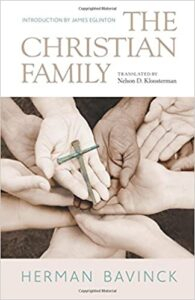
1. Herman Bavinck, The Christian Family (Christian’s Library Press, 2012)
Big Idea: “The human nature given to man and woman is one and the same, but in each of them it exists in a unique way. And this distinction functions in all of life and in all kinds of activity” (68).
Audience: Thoughtful Christian, especially good for pastors.
Bottom Line: While some people may find Bavinck’s assumptions dated here or there, on the whole this is a tremendous work, providing a robust theology of the family and a necessary corrective to contemporary notions that would have us believe there is neither a manly nor a womanly way to follow Christ.
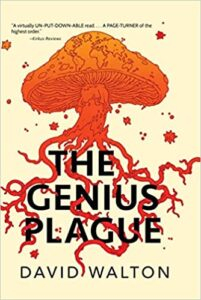
2. David Walton, The Genius Plague (Pyr, 2017)
Big Idea: A science-fiction book about a mushroom plague from the Amazon that invades its human hosts, giving them heightened intelligence and nefarious instinct to take over everyone and everything in its path.
Audience: Any reader, teenage or older.
Bottom Line: I heard Phil Ryken recommend this book as one he couldn’t put down. I agree. While the theme of a global plague may not be your cup of tea at the moment, Walton tells a fast paced story that grips you from start to finish.
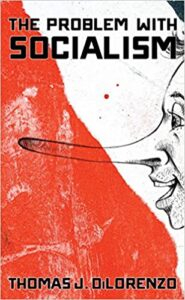
3. Thomas J. DiLorenzo, The Problem with Socialism (Regnery, 2016)
Big Idea: “This book will serve as a primer on socialism (and capitalism) for some; a historical reminder for others; and a handy sourcebook on all the problems of socialism and how it threatens a free society” (12).
Audience: General.
Bottom Line: Written by a professor of economics at Loyola University (MD), the title tells you what to expect. The book will probably do more to reinforce the already convinced than to persuade those on the other side.
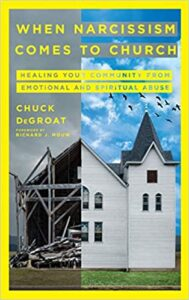
4. Chuck DeGroat, When Narcissism Comes to Church: Healing Your Community from Emotional and Spiritual Abuse (IVP, 2020)
Big Idea: “Narcissism is born in the soil of shame and self-contempt, not healthy self-love. Narcissism is not fundamentally about self-love but about an escape from love. The fragile little boy goes into hiding and the protective false self takes the lead” (30).
Audience: Popular-level book for a Christian audience.
Bottom Line: This book hits on an all-too-real problem in the church. DeGroat’s description of emotional and spiritual abuse will sound familiar to many people. Unfortunately, I found the book much better at description than prescription, the latter of which consists in a psychological framework rooted in Thomas Merton, Carl Jung, Richard Rohr, and the Enneagram.
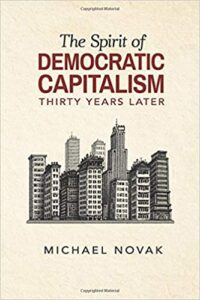
5. Michael Novak, The Spirit of Democratic Capitalism Thirty Years Later (Institute for Faith, Work, and Economics, 2015)
Big Idea: “Universal wealth is best created not by slavery or serfdom, and not by governmental direction from the top down, but by free women and free men using their own inventive and industrious minds to serve the largest public they can reach” (9).
Audience: This is a short pamphlet of a book (35 pages) for a general audience.
Bottom Line: A useful recapitulation (or re-introduction) of several key themes from Novak’s seminal book, The Spirit of Democratic Capitalism (1982).
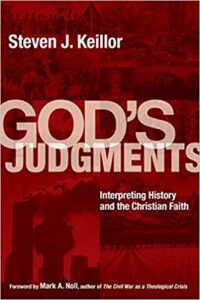
6. Steven J. Keillor, God’s Judgments: Interpreting History and the Christian Faith (IVP Academic, 2012)
Big Idea: “The basic idea of this book—that we must return cautiously and accurately to the concept of God’s judging activity in history as central to Christianity—emerges partly out of the inadequacy of other ideas” (18).
Audience: This is an academic book written by a trained historian, but the content is accessible to an educated audience.
Bottom Line: Keillor convincingly argues that Christianity is an interpretation of history and that as the Christian interprets history we should dare to see God’s judgments as central to it. And yet, while I found this central theme persuasive, I was not persuaded by Keillor’s attempts to provide concrete explanations for specific divine judgments in history (e.g., 9/11, the burning of Washington).
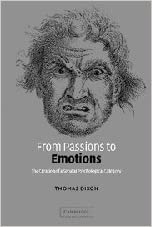
7. Thomas Dixon, From Passions to Emotions: The Creation of a Secular Psychological Category (Cambridge University Press, 2003)
Big Idea: The notion that “emotions are physiological, non-cognitive and involuntary feelings” are “all ideas that gained currency as a result of divergence from traditional teachings about the ‘passions’ and ‘affections’ and the concomitant adoption of the secular category of ’emotions’ in the nineteenth century” (14).
Audience: Academic, helps to have a working knowledge of major thinkers from the 18th and 19th centuries.
Bottom Line: This important book shows how theology, psychology, and the way we talk about human experience is worse off for having the older categories of passions, affections, and sentiments collapsed into the modern category of emotions. Theologians and pastors should read this book (or at least read the first couple chapters on Augustine and Aquinas).
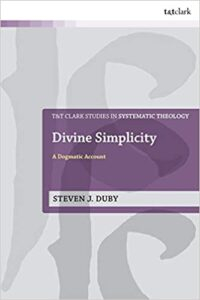
8. Steven J. Duby, Divine Simplicity: A Dogmatic Account (T&T Clark, 2016)
Big Idea: Simplicity is “a divine attribute rooted in Holy Scripture’s portrayal of God in his singularity, aseity, immutability, infinity and work of creation ex nihilo. In other words, this is not an iteration of the project of ‘perfect being’ theology, but rather an exercise in Christian dogmatics, setting forth the content of exegesis in an elaborative, discursive manner, and then identifying implications for divine simplicity” (2).
Audience: Academic, not going to meet the lay reader halfway.
Bottom Line: An impressive exploration and defense of divine simplicity, with scholarly chops on display in exegesis, philosophy, and dogmatics.
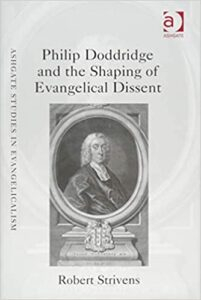
9. Robert Strivens, Philip Doddridge and the Shaping of Evangelical Dissent (Ashgate, 2015)
Big Idea: “Philip Doddridge has been rightly presented in the secondary literature as influenced significantly by John Locke in his philosophy and by Richard Baxter in his theology and spirituality.” This is not incorrect. But Strivens argues that Doddridge’s “appropriation of Baxter and of Locke has been shown to have been nuanced and influenced in important areas by other significant Puritan and Calvinist elements” (162).
Audience: Academic, but clearly written and well organized.
Bottom Line: While the book is written with specialists in mind, pastors and other students of Christian history would do well to know more about one of the most important evangelicals in the first half of the 18th century.
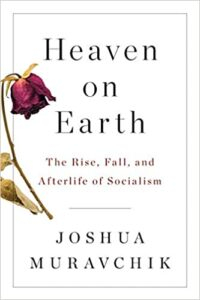
10. Joshua Muravchik, Heaven on Earth: The Rise, Fall, and Afterlife of Socialism (Encounter Books, 2019)
Big Idea: Written by the son of communists, this book is an intelligent and readable history of socialism told through a series of biographical vignettes. If Muravchik is subtly critical of socialism, it is only because the history of socialism’s leaders and experiments have so much to be objectively critical of.
Audience: General interested reader.
Bottom Line: Before reading a book on economics for or against socialism, I would read this book on the origins and historical development of one of the world’s most consequential ideas over the last 250 years.
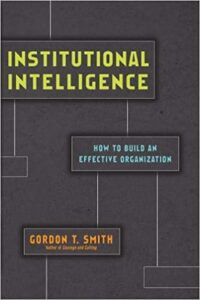
11. Gordon R. Smith, Institutional Intelligence: How to Build an Effective Organization (IVP Academic, 2017)
Big Idea: “Pastors need to be encouraged to view the work of administration not as a necessary evil, a distraction, but as rather an integral part of what it means to provide congregational leadership” (8).
Audience: Popular-level book aimed at pastors, presidents, board members, and anyone who has a role to play in the fidelity of effectiveness of institutions.
Bottom Line: Most pastors and Christian leaders don’t give enough time developing institutional intelligence. This book is a wonderful remedy to this common gap in our discipleship. A wise and practical book.
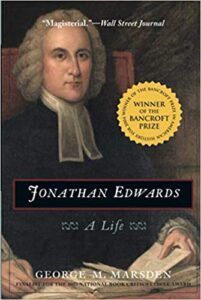
12. George M. Marsden, Jonathan Edwards: A Life (Yale University Press, 2003)
Big Idea: “Edwards was extraordinary” (1). And yet, we must get to the person behind the monuments. “In writing this life of Edwards, one of my goals has been to understand him as a real person in his own time” (2).
Audience: This is a lifetime of scholarship written with such command of the material and with such ease as to make the book accessible to a wide audience.
Bottom Line: I read the shorter version by Marsden years ago and read parts of this magisterial biography here and there, but I never read the whole thing until now. It lived up to the hype. Truly, one of the best biographies you can read.



